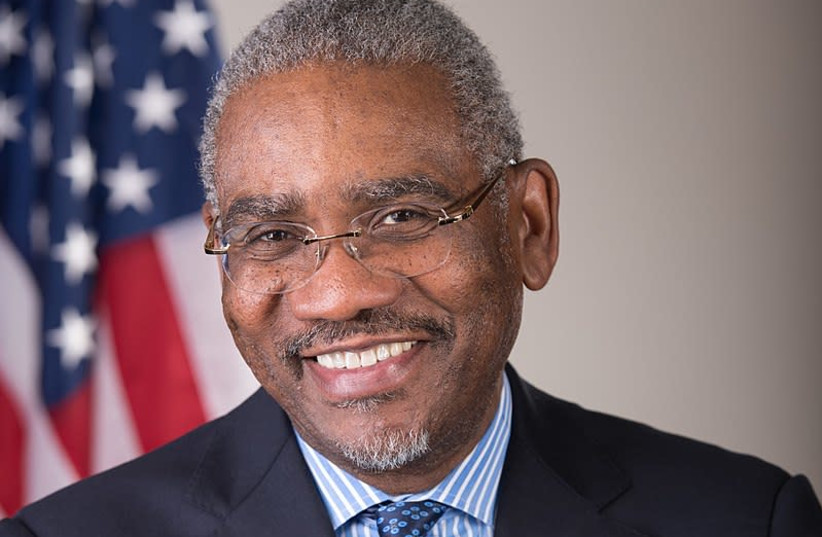
WASHINGTON – Rep. Gregory Meeks (D-New York), chairman of the House Foreign Affairs Committee, called on Wednesday to work in a bipartisan way to build on the Abraham Accords and to find a common ground between the US and its allies regarding Iran.“One of the few things that I agree with the outcome of the Trump administration – maybe not necessarily how we got there – [is] the Abraham Accords,” Meeks said in a panel discussion at the Brookings Institute. “I think that’s important, [and] something that we can look at [in a bipartisan way] to try to make sure that we are getting the Gulf states involved in acknowledging that Israel has the right to exist and try to [have a] dialogue and to get more Gulf states as part of the accords and to get leverage to get the Palestinians at the negotiating table and have both [sides] at the negotiating table.”Meeks went on to say that he is committed to a two-state solution. “I think that’s important, and we can’t lose sight of that.”Asked whether the committee could work on a bipartisan basis to solve additional challenges, he said both sides should try to find a common approach to Iran. “This is something that we’ve got to do together, and we’re not quite there together at this particular point.”“I think what the Biden administration does is exactly right,” he continued. “He’s meeting with our allies at the p5+1 and trying to make sure that we talk to them first. That’s extremely important because I believe that the way you deal with Iran is with our allies. The Biden administration is making sure there is a dialogue and conversation with the Israeli government. He talked to Prime Minister [Benjamin] Netanyahu, and he’s trying to get all of our allies from the region and the P5+1 together, and that’s the way that I think that we can prevent an escalation.”He said that he supports the efforts to reenter the 2015 nuclear agreement known as the Joint Comprehensive Plan of Action (JCPOA). “While we were in the agreement, Iran was abiding by it, and they were not creating more centrifuges, enriching more uranium or anything of that nature. They did that after we left the agreement,” he said. “And so, we’ve got to have that conversation. I think that’s important.”According to Meeks, the agreement should address other issues such as Iran’s ballistic missiles program. “The main intention of the JCPOA was to make sure that Iran did not have a nuclear weapon, he said. “And we know that by us being out of the JCPOA Iran is closer now than they were when they were in the agreement. We’ve got to make sure that we also look at extending the sunset clause, we’ve got to look at the issue of ballistic missiles, and things of that nature.”Addressing the US-Israel relationship, he said: “I know how important Israel is to us as a partner and I am committed to that partnership; our social political and economic ties run so deep, and I’m committed to making sure that that continues.”He emphasized that he opposes annexation of settlements but added that he does not support in conditioning aid to Israel. “If you continue annexation, there’s no two-state solution. There’s nothing to negotiate,” said Meeks. “So I’m a firm believer that you have to stop annexation. I’m also a firm believer that Israel has the right to defend itself, and that’s why I’m unequivocal in regards to support to the MOU [Memorandum of Understanding], and that that should not be touched at all.”
Source
Related posts:
Views: 0
 RSS Feed
RSS Feed

















 February 25th, 2021
February 25th, 2021  Awake Goy
Awake Goy 



 Posted in
Posted in  Tags:
Tags: 
















